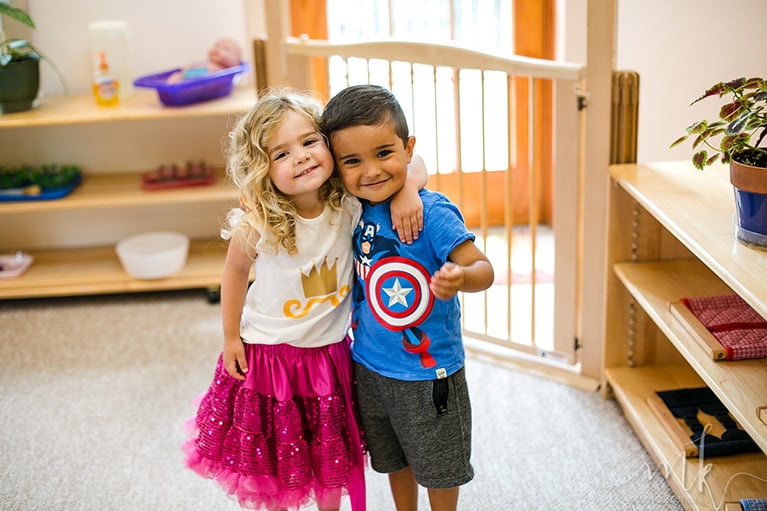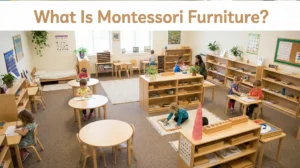Early childhood centres and preschools can be essential support systems for many parents when it is time to go back to work and continue their careers. However, preschools aren’t just a practicality, they have proven to be extremely beneficial for early childhood development.
Group play and one-on-one time are certainly beneficial in early childhood learning, but what exactly is it about early childhood centres that are particularly useful for development?
What are the benefits of early childhood education?
Pre-schoolers are a bundle of energy, wonder and enchantment. When programming for children it is important to remember that each child develops at their own individual pace and may respond to learning experiences in different ways. As educators of early childhood care in Toowoomba, we take the time to get to know each child and their interests and appreciate each child’s special characteristics, as what works for one child may not work for another. This ensures each child develops a positive attitude towards learning by pursuing their interest through play-based learning- using enthusiasm, imagination, and persistence.
We acknowledge each child’s differing needs for independence and autonomy. While providing opportunities to guide, support, and extend children’s existing skills and encourage them to become lifelong learners.
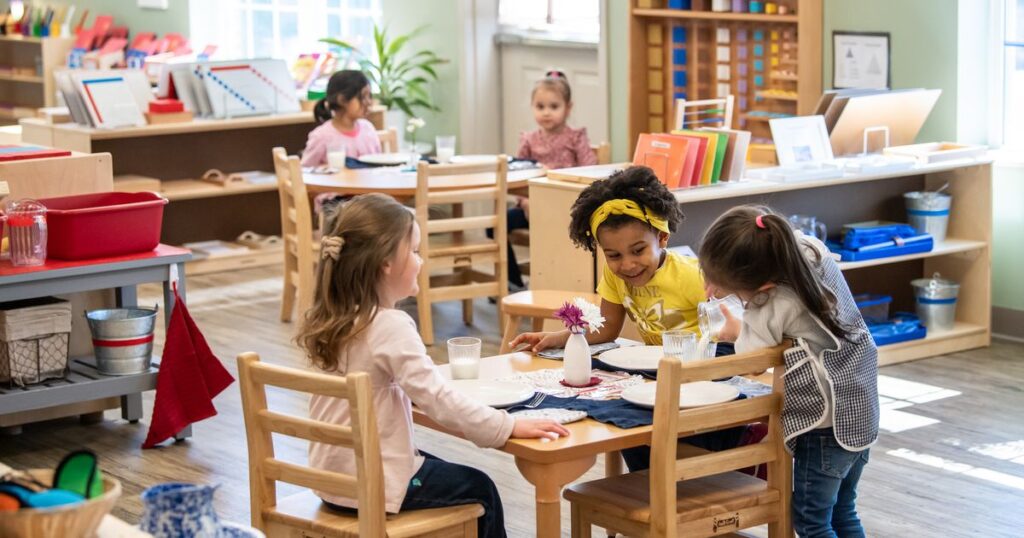
1. Cognitive and Social Development
The first five years of a child’s life are crucial for their development, as this is when all basic foundations are set for their future thinking, behaviour patterns and emotional wellbeing. Learning environments in early childhood centres allow for play-based learning which encourages language and emotional skills as well as the development of creativity and imagination.
Children learn best through child-led programs and continuity of learning.
As children’s learning expands, the environment plays a critical role. The richer the environment, the more concrete opportunities there are for children to learn by interacting with materials and people. Pre-school children supplement what they have learnt through these early experiences.
When looking at childcare centres in Toowoomba, it may just look like children are having fun playing with no structure. However, childcare centre educators are actually following a curriculum that encourages learning and development through the educational resources and prepared activities given to children to grow and learn.
Early childhood learning provides great opportunities for children to feel competent and excited to learn because children who attend daycare in Toowoomba or other locations will have some conception of literacy, maths and science. This helps build upon what they already know.
2. Improved Social Interaction
A child must learn how to approach other children, how to negotiate issues that come up, how to take turns, and how to communicate effectively. Children who can develop and maintain friendships are more likely to lead successful and productive lives as adults.
These kinds of skills are crucial not only for the rest of their formative education but later in adult life too. Setting these foundations early will help your child to make healthy emotional choices and foster positive relationships throughout their life. Children are then able to develop a sense of belonging within their communities and an understanding of the reciprocal rights and responsibilities necessary for active and positive community engagement.
Spending time with their peers will allow children to learn to include ideas from others in their play and start to develop empathy for others. Empathy is challenging at these young ages because young children are naturally egocentric. An educator’s role within the Childcare environment is to assist children when interacting with their peers by role modelling appropriate behaviours and responses.
The long term benefit of early childhood education will see children learn by watching and interacting with other children their age and form friendships that stimulate healthy development.
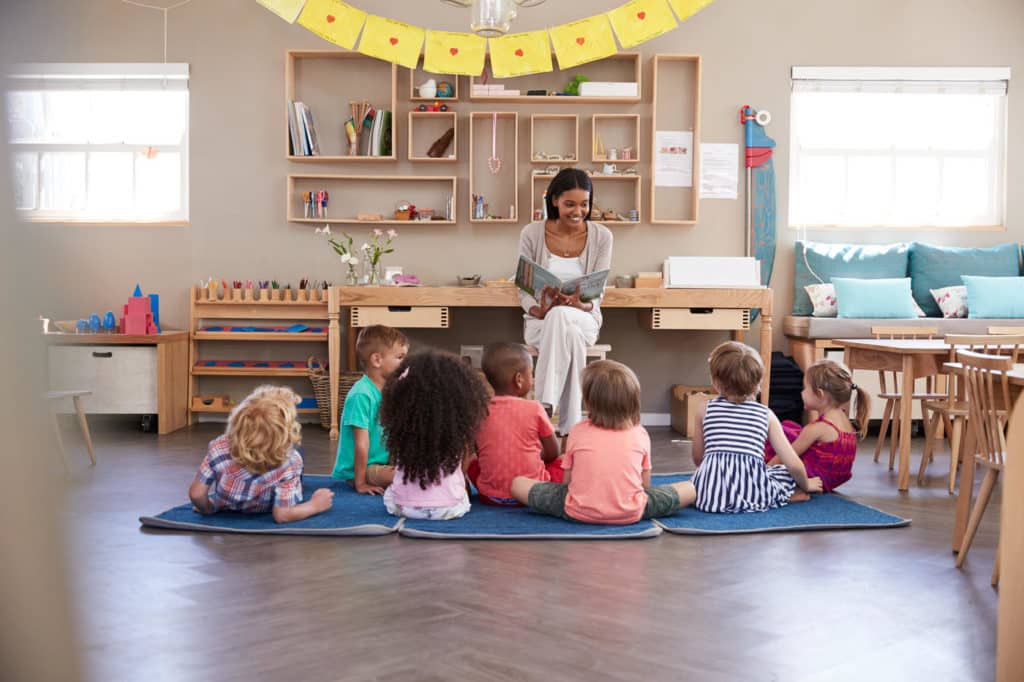
3. Learn New Routines
Receiving early childhood education also allows children to learn new routines outside of the family home. Positive routines set by childcare centres play an important role in making sure children feel safe and secure.
Children learn to know what to expect from their early childhood educators and therefore reduce challenging behaviours like tantrums. A mix of indoor and outdoor activities with flexible routines is programmed for each appropriate age group. This in turn plays a big part in the preparation, time management and skills needed for “Big school” as the Children here at Kids Club like to call it.
This can also align with the routines set at home and help develop the relationships and expectations of young children with their parents to form an increased bond.
4. Improved Academic Performance
Research from the Australian Early Development Census suggests that children who are exposed to at least one year of early childhood education are more likely to perform well in primary school. By boosting their cognitive development early, they are likely to reach higher levels of literacy and numeracy later in their education.
The research also suggests that children exposed to early childhood education are more likely to finish their Higher School Certificate (HSC) and are more likely to complete tertiary education.
Some studies also suggest that early math skills measured in kindergarten, particularly related to counting and number sense, can predict reading, math, and science achievement in later years.
Further, exposing your children to the routines set in child care centres can help with the often challenging transition to primary school routines. Introducing primary schooling can be quite difficult for many children, but having positive interactions at a child care centre and experience in early childhood learning routines will lead to a more positive transition and experience when starting kindergarten.
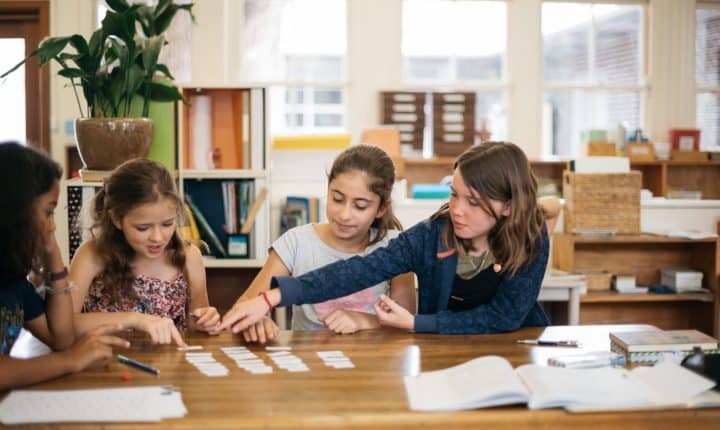
5. Learn to Become Independent
Being in a safe environment away from home fosters independence in young children. Early childhood learning curriculums also focus on building independence, confidence and self-identity.
Children’s early non-academic skills, such as social competence and self-regulation, also contribute to school success. Some studies suggest that early social skills are linked to future literacy achievement.
Part of their developing independence will also include developing their self-regulation skills which are crucial between the ages and 3 and 5 years old. This builds upon their skills to concentrate, share and take turns.
6. Improved Health, Wellbeing and Resilience
Immersing your child in group learning environments early on in life helps them to develop a good sense of emotional maturity, which ensures strong relationships in future. It teaches them how to interact with children and adults from all backgrounds, and equips them with the social skills required to make friends and build appropriate relationships with educators.
Early childhood learning centres are also a great way to reinforce healthy habits that are already being introduced at home, such as hygiene, brushing teeth, toilet training and etiquette and washing hands.
When children have consistent interactions with the educators and when they know what to expect from their childcare centre, they’re more likely to feel calm, safe and settled which improves their overall wellbeing.
Research also suggests that children who attend early childhood education between the ages of 2 and 3 years are more likely to be attentive and better able to cope with their emotions. The emotional skills gained at this age will help build their resilience as they grow.
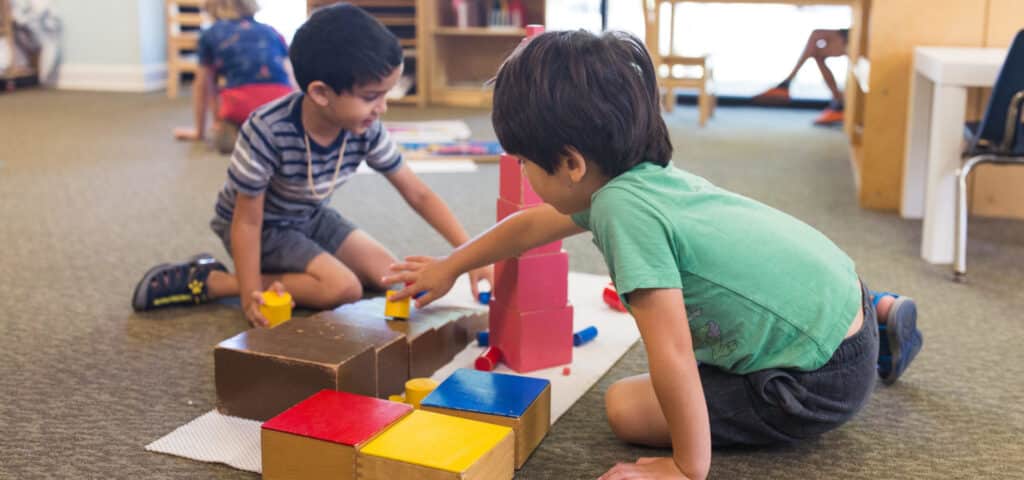
The Long-term Goals for Preschoolers
Preschool is so much more than a place for children to play during the day. It offers countless social, cognitive, academic, emotional and health benefits that could aid them throughout their childhood and well into their adult life.
By considering the right childcare centre with the appropriate early childhood education program in place, your child can achieve long term goals such as feeling safe and secure, developing independence and resilience, learning empathy, discovering their identity as well as learning to transition to higher forms of learning after preschool.

